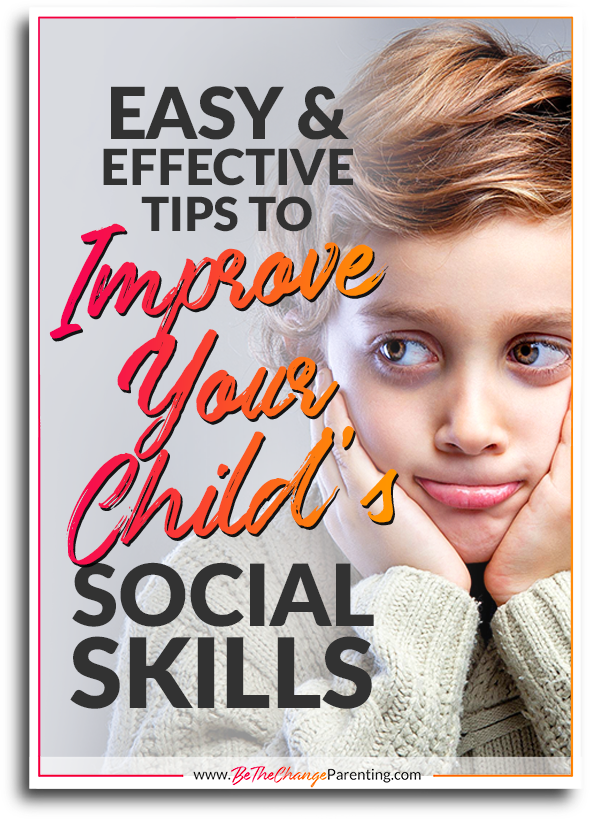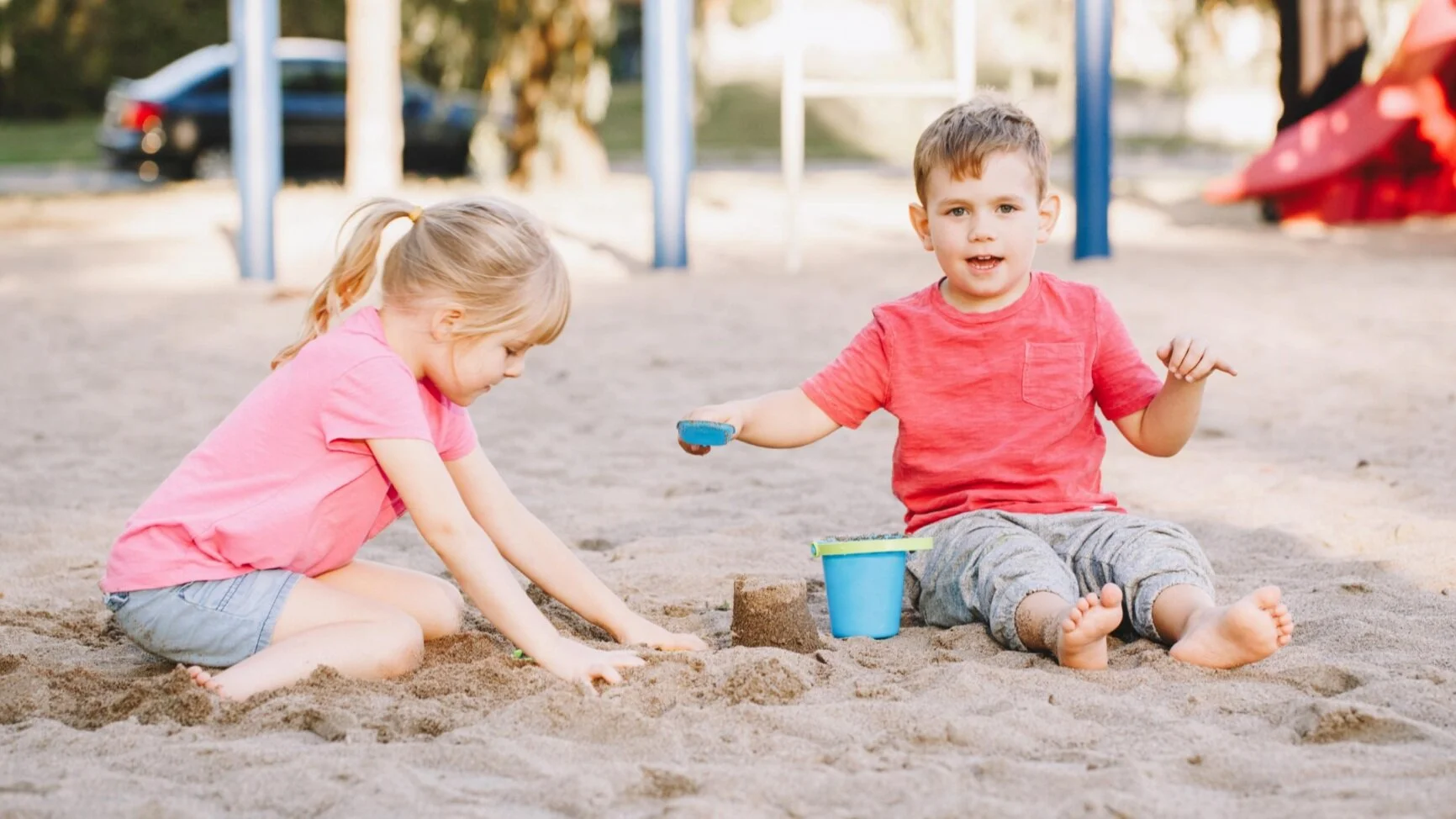3 Easy & Effective tips to improve Social Skills for Children
I want my kids to be happy. Don’t we all?
I want my kids to have a good circle of friends, to go to school happy, come home and play with the neighbors, and have play dates over the weekend.
Is that too much to ask for?
Well apparently yes - for some kids.
How is it that some kids just know, naturally, how to make conversation?
They know what to say and what not to say, where to leave a pause, not dominate the interaction and how to be flexible, while some just don’t.
And what do I do about it?
I had the terrible fortune of watching one of my kids being bullied for years at school and in the neighborhood. I saw it go on year after year, not knowing what to do.
It was oh so painful.
And now years later, I have one of my little ones going to school and it’s like a complete repeat of the older one!
Same bullying.
Same social insecurity.
Same bewildered mom.
So, someone made a comment to me. “Well, at least you’re an experienced mom and you know what to do this time around.” I was like, “uh, yeah.”
I know what to do this time around? Do I?
That’s when my mom power determination got the better of me and I decided that I was going to figure this one out. I’m not going to watch this kid friendless and being bullied for years on end.
And by the way, it doesn’t help to switch them to another school. If the kid has a social insecurity the bullying will happen in another school too. (Trust me, I’ve tried it – with both of these kids!)
here’s what’s worked for me in developing Social Skills for children:
1. Play Therapy
The world of play therapy is unbelievable. You can learn everything about what’s going on inside your child just from playing with them, literally.
Not only that, you can teach them social interactions through your play, which will be much better heard than just straight out telling them – do this and don’t do that.
I found my son a good play therapist and the change has been amazing! I noticed development in his social skills gradually.
While your child is going to therapy, I highly recommend that you learn from the therapist - have them teach you how to play with your child in a therapeutic way. Then you can sit down every day with your child and play with them too.
☞ If you like this post, you will love: How to Talk So Your Kids LOVE to Listen
2. Play Dates
Our play therapist told me straight out that the most important thing I can do for my son is make him play dates. The more the better. As they say ‘practice makes progress’.
He suggested that when my son's friends come to our house, I should keep an ear out and call him every now and give him some ideas how to handle his interactions.
Like “Oh, I see that Josh really wants the red car. Sometimes it’s good to let your friend have the first turn.” or; “Why don’t you play what your friend wants to play and next time he’ll play what you want to play?”
Going to the other kid’s house is important too. The more opportunity he has to practice his social skills the better off.
So I got a list from the teacher of all the kids he plays well with and we’ve been doing a lot of driving around to their houses.
The truth is, I invited even the kids who are not so nice to him at school. When I explain to their mother that my son is having some social insecurities and could use some help, most mothers are plenty happy to suggest to their son that they play together after school.
More often than not, it works out great. (Sometimes not, but it was worth the try😊) And of course, I make lots of yummy snacks when a friend comes over, so they’ll want to come again!
☞ If you like this post, you will love: How to Discipline a Child with ADHD and ODD
3. Social Thinking
I’m absolutely hooked on Social Thinking. I love their work. I think they are a goldmine for teaching social skills. They have books, curriculum, comics, you name it, and for a span of ages. For little kids on up to adulthood.
Just by reading the kids a cute bedtime story they can be learning valuable lessons in social skills.
Here are my favorite ones: Social Thinking and ME! Two Book Bundle

This is the perfect tool for the introduction and teacing of core Social Thinking Vocabulary and some complex concepts to kids ages 9 to 14. It breaks down wider concepts into smaller pieces which makes it easier for children to understand. The great things about this two-book bundles is it doesn't need prior knowledge of their methodology. It's really helpful for new parents in helping their kids with social skills.


This curriculum package is a fun way to motivate students with high-functioning ADHD, Asperger Syndrome, and other social difficulties into building their social skills. It includes a colorful storybook - Superflex Takes on Rock Brain and the Team of Unthinkables, the Superflex curriculum, and a CD of all worksheets and handouts for easier access and printing of materials.
I personally recommend this not only for learning, but also for a good bonding moment with your kids.
What were you thinking? A Story About Learning to Control Your Impulses
A third grader named Braden is a comic genius - as he sees it. He loves the attention he is getting from his awestuck friends. However, an impulsive reaction and an ill-timed joke he made left a classmate teary-eyed in gym class. Braden's teachers and moms then decided that he should be taught how to control his impulses. Find out how they helped in managing his impulses in this hilarious short story by Bryan Smith.
Let the kids find out how they can relate to Braden and apply the things he learned on their own social interactions.

Another comical story of Braden by Bryan Smith. In this story, Braden is all prepared and excited for his baseball game. The night before, he dreamed of the cheer some crowd as he scored and win it.
But alas! He woke up to a pouring rain which means the game is cancelled. Combine this with some more situations that didn't go as planned and Braden is in for an uncontrolled overreaction.
See how he remembered and practiced the tips in flexible thinking that he learned from his Mom and teachers.
☞ If you like this post, you will love: How to Raise Problem Solvers Using the Power of Magic Words
WATCHING YOUR FRIENDLESS CHILD
Watching kids suffer through friendless days is painful – I’ve been there. But after all our hard work to help them out, running around to therapy and play dates, I truly believe that the most important thing is to be there for them emotionally.
To be their friend, their confidante and to accept them for who they are. We need to fill our children’s cup of confidence so high that no one from the outside can ever empty it out.
I’ve played many a game of baseball, Monopoly, Ticket to Ride, Sorry, Playmobil, and much much more with a friendless child or two of mine. And oh the books we read together.
I hope they made for some good warm memories in their hearts. They sure did in mine.
Take the opportunity during the times that your child doesn’t have friends to develop a super strong relationship with them. This relationship will only grow stronger and someday when he grows up and does have friends, he’ll seek you out and look to your for life’s advice.
Make sure to also work on building his self-esteem and self-confidence which can be hard hit when he’s hurting socially. And give him loads of encouragement!
What have you seen help to develop social skills in children and build friendships?




